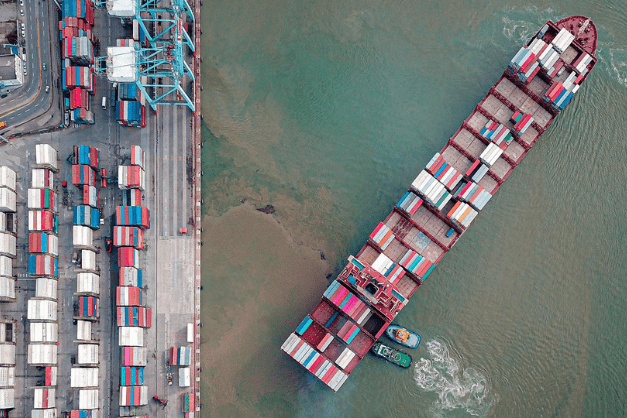In this article
In an industry filled with data, being data driven as a logistics service provider should be a no brainer. Analyzing shipping data can be used to gain a competitive advantage in freight forwarding by informing logistics decisions and fueling the thought behind future strategies. The maximum potential impact of utilizing your data will not be reached without a conscious effort to look for patterns and constantly evaluate where data can provide feedback for your team.
Let Data Inform Decisions
The amount of data available in logistics may be plentiful, but that data is useless if not used to inform tactical decisions for your freight forwarding company. Establish a consistent routine of analyzing current and historical data to specifically address questions involved in your company’s strategies.
Choosing the right partners
Throughout a shipment, there are a variety of service providers that forwarders will decide to work with – including carriers, truckers, warehouses, digital partners, and more. Choosing the right partners comes down to analyzing the available, historical, and requested data to ensure you are giving the best service to your customers. Gathering personal data from working with partners can be used to assess historical rates (and changes over time), transit time reliability, loss/damage of shipments historically, and billing accuracy. These stats can be helpful when determining who you want to continue working with.
Sharing realistic timelines for customers
A great customer experience for shippers is critical for your forwarding business, and accuracy/transparency is key in achieving that. For example, historical data can be used to adjust initial timelines for a shipment based on trends in seasonal and geographical delays, and examining the average delay time of specific exceptions can also give more accurate visibility to your customers. This data should be accessible to give your internal teams as much information as possible so they can determine the realistic timelines for your customers.
Driving Future Strategies
An important change in mindset for forwarders is focusing on not only the data at hand, but also historical data paired with predictive analysis to create future protocols.
Informing shipping patterns
Based on the starting and ending destinations of your customer’s shipments, deciding the best routes can be made easier with historical data. Inefficient routes can be determined by repetitive delays, port issues, and other exceptions that continuously occur in specific routes or by specific carriers.
Drive Revenue
Decisions on pricing structures for customers can be strategically made by evaluating the data of a few factors. Watching the cost trends of different legs of a shipment journey can help support quoted pricing. Staying on top of changes in competitor pricing over time and their comparison of offerings gives you hard numbers to display to prospects to justify any elevation they may see in your quotes. Additionally, providing data and visibility to customers over time can enable you to charge more for your services as shipment visibility is a top priority for shippers, and they are willing to pay for it.
/*! elementor – v3.6.8 – 27-07-2022 */
.elementor-widget-image{text-align:center}.elementor-widget-image a{display:inline-block}.elementor-widget-image a img[src$=”.svg”]{width:48px}.elementor-widget-image img{vertical-align:middle;display:inline-block}

Improvements to the management of your customer’s shipments result in more profitability for your company. A customer who trusts your team to manage their shipments using the best routes and practices will become a repeat customer. Being able to demonstrate that your team not only provides great customer experience, but decision making around their orders based on data will win you new business.
Managing and analyzing data should not be a time consuming addition to your strategy or done solely through manual efforts by your team. Digital partners can provide tools for your team to capitalize on the data your company already has at its disposal and to improve your overall logistics management.
